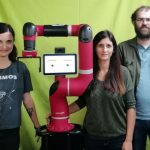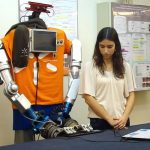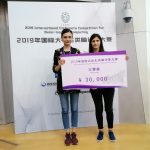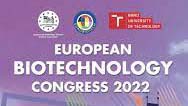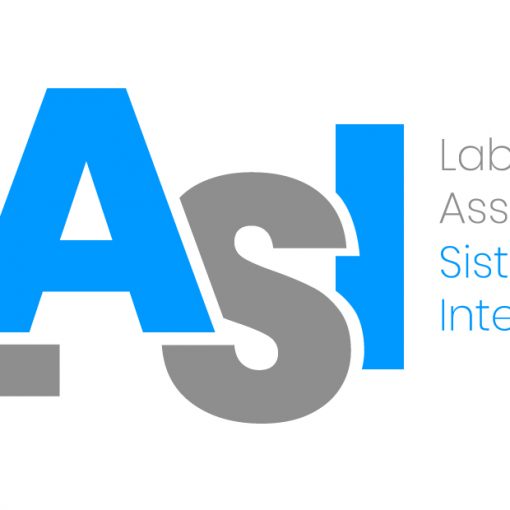Weronika Wojtak, Flora Ferreira and Paulo Vicente, from the PhDs in Mathematics and Electronic Engineering and Computers at the University of Minho, were distinguished at the “International Brain-Inspired Computing Competition” held in Beijing, China, which brought together 200 teams from all over the world. The Portuguese team presented a robot that learns sequences about what to do and when, and then uses them flexibly in various human-robot interaction and collaboration contexts. After winning their preliminary round, the UMinho trio faced 15 other teams in the final – from USA, Germany, the United Kingdom, Australia, Singapore and China – and won the third prize, receiving a diploma and about 4000 euros (30.000 yuan).
“We are very pleased with this international recognition, which shows the quality of UMinho’s research, gives visibility to national science and opens the way for future projects in the area of robotics and artificial cognition”, says Flora Ferreira. The awarded work, “Learning sequences with time constraints”, focuses on robotics inspired by cognitive neurosciences and was developed at the Schools of Engineering and Science , in partnership with the Mathematics Centre and the ALGORITMI Centre and with the guidance of teachers Wolfram Erlhagen and Estela Bicho.
The idea of the project is to enable robots to learn complex sequences with time constraints to improve the smoothness and fluency of human-robot interactions. In this context, activities with numerical and temporal order, such as the construction of objects, are central to human adaptive behaviour and an increasingly dynamic environment. Thus, the research team developed a neuro-computational model with bioinspired processing mechanisms that support efficient acquisition and flexible reproduction of sequences. The model has been tested in real-world robotics experiments, such as learning a musical sequence, joint representations, and object construction. Flora Ferreira explains that the tested robot acquired knowledge by demonstration and then recalled this information, taking into account potential speed restrictions and other circumstances.
